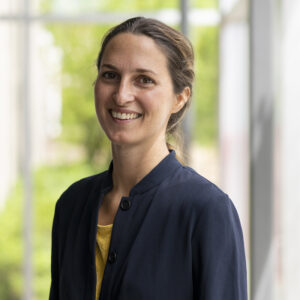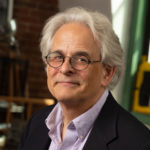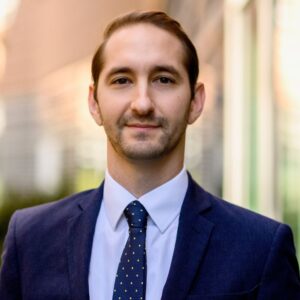Through its faculty, the center creates academic research and events that engage with the state of the art of innovation and intellectual property policy. CLIC studies everything from the legal impact of the latest technology gadgets and their consumer protection concerns to the state of the art in the humanities, sociology, and psychology of creativity and the arts.
 Brook K. Baker
Brook K. Baker
Professor of Law
Harvard University, AB 1969
Northeastern University, JD 1976
Email: b.baker@northeastern.edu
Professor Brook Baker teaches a Global HIV/AIDS Policy seminar, disability discrimination law, negotiations and an analytical skills workshop. His recent scholarship has focused intellectual property and access to medicines and intensifying the legal, economic and policy response to the global HIV/AIDS pandemics. He has taught and consulted in South African law schools and law school clinics since 1997. Professor Baker is an honorary research fellow at the University of KwaZulu Natal in Durban, South Africa.
 Shalanda H. Baker
Shalanda H. Baker
Professor of Law, Public Policy and Urban Affairs
United States Air Force Academy, BS 1998
Northeastern University School of Law, JD 2005
University of Wisconsin Law School, LLM 2012
Email: s.baker@northeastern.edu
Professor Baker works closely with colleagues in Northeastern's Global Resilience Institute. She teaches courses at the law school and in the College of Social Sciences and Humanities related to her research interests in environmental law and energy law.Professor Baker served as an Air Force officer prior to her honorable discharge under the “Don't Ask, Don't Tell” policy, and became a vocal advocate for repeal of the policy. Following her graduation from law school, Baker clerked for Justice Roderick Ireland of the Massachusetts Supreme Judicial Court. She also worked as a corporate and project finance associate for Bingham McCutchen LLP, initially in Boston and later in Japan. Professor Baker also completed a William H. Hastie Fellowship at the University of Wisconsin Law School, where she also received her LLM degree. In 2016, she won a Fulbright award and spent a year in Mexico exploring energy reform, climate change and indigenous rights.
Professor Shalanda Baker is on a professional leave of absence to serve in the Biden-Harris Administration as the director of the Office of Economic Impact and Diversity at the U.S. Department of Energy (DOE).
 Elettra Bietti |@Elibietti
Elettra Bietti |@Elibietti
Assistant Professor of Law and Computer Science
University College London, LLB 2011
Harvard Law School, LLM 2012
Oxford University, Postgraduate Diploma in IP Law and Practice 2016
Harvard Law School, SJD 2022
Elettra Bietti, an expert on market regulation, data and antitrust law as they play out in the digital economy, joined the Northeastern faculty in 2023 as assistant professor of law and computer science within the School of Law and the Khoury College of Computer Sciences. Professor Bietti was previously a joint fellow at the Information Law Institute at NYU and the Digital Life Initiative at Cornell Tech in New York. Professor Bietti studies how platform companies such as Google or Twitter shape people’s political and consumption choices and defends conceptions of privacy, data protection and antitrust law that are sensitive to infrastructural and collective concerns in the digital economy.
 Claudia Haupt | @CEHaupt
Claudia Haupt | @CEHaupt
Professor of Law and Political Science
University of Cologne, First Law Degree (LLB equivalent) 2003
University of Cologne, PhD 2008
George Washington University Law School, LLM 2009
Columbia Law School, JSD 2017
Email: c.haupt@northeastern.edu
Associate Professor of Law and Political Science Claudia E. Haupt joined the Northeastern faculty in 2018. Professor Haupt’s current research is situated at the intersection of the First Amendment, health law and torts in the context of professional speech. Her further research interests include constitutional law and comparative constitutional law as well as law and technology.
 Bruce Jacoby
Bruce Jacoby
Clinical Professor of Law
Friends World College, BA 1974
University of Connecticut School of Law, JD 2003
Professor Jacoby directs the School of Law’s Intellectual Property Law Clinic. He previously served as an assistant clinical professor for the Intellectual Property and Entrepreneurship Law Clinic at UConn School of Law, where he earned his JD in 2003. After law school, he joined Wiggin & Dana in New Haven as a member dedicated to the firm’s intellectual property practice group, and held similar positions in subsequent years at other firms, most recently as senior trademark counsel to Kim IP Law Group, an intellectual property boutique.
 Jonathan Kahn
Jonathan Kahn
Professor of Law and Biology
Yale University, BA 1981
University of California, Berkeley, JD 1988
Cornell University, PhD 1992
Professor Kahn, a leading authority on biotechnology’s implications for our ideas of identity, rights and citizenship, with a particular focus on race and justice, holds a joint appointment with the School of Law and the Department of Biology in the College of Science. He also plays a key role in the law school’s Center for Health Policy and Law.In this most recent book, Race on the Brain: What Implicit Bias Gets Wrong About the Struggle for Racial Justice (Columbia University Press), Professor Kahn argues that implicit bias has grown into a master narrative of race relations — one with profound, if unintended, negative consequences for law, science and society. He emphasizes its limitations, arguing that while useful as a tool to understand particular types of behavior, it is only one among several tools available to policy makers. “A pivotal work of detailed, meticulous, groundbreaking scholarship, Race on the Brain: What Implicit Bias Gets Wrong About the Struggle for Racial Justice is an extraordinarily well written, organized and presented study to the intractable work of ensuring social justice,” according to The Midwest Book Review.
 Rashida Richardson
Rashida Richardson
Assistant Professor of Law and Political Science
Wesleyan University, BA 2008
Northeastern University School of Law, JD 2011
Email: r.richardson@northeastern.edu
Professor Rashida Richardson specializes in race, emerging technologies and the law and is a senior fellow in the Digital Innovation and Democracy Initiative at the German Marshall Fund. Richardson’s research focuses on the social and civil rights implications of data-driven technologies, including artificial intelligence, and develops policy interventions and regulatory strategies regarding data-driven technologies, government surveillance, racial discrimination and the technology sector.
Professor Richardson is currently on leave.
 Alexandra Jane Roberts | @lexlanham
Alexandra Jane Roberts | @lexlanham
Professor of Law and Media
Dartmouth College, AB 2002
Stanford University, AM 2003
Yale Law School, JD 2008
Email: al.roberts@northeastern.edu
Professor Roberts holds a joint appointment with the Department of Music within the College of Arts, Media and Design (CAMD) at Northeastern University.Professor Roberts joined Northeastern from the University of New Hampshire Franklin Pierce School of Law (UNH Law), where she remains an affiliate faculty member, teaching trademarks, entertainment law, contracts and pop culture law. She previously served as the executive director of the Franklin Pierce Center for Intellectual Property. Her research focuses on federal trademark and false advertising law, particularly in cyberspace: she has written on topics including influencer marketing; trademark use on social media; hashtags as trademarks; and trademark law’s failure to function doctrine. She also writes on law and literature. Before joining UNH Law, Professor Roberts was a visiting assistant professor at Boston University School of Law. Prior to that, she was an associate in the intellectual property litigation group of Ropes & Gray, first in its New York and then its Boston office. She holds a JD from the Yale Law School, an AM from Stanford University and an AB from Dartmouth College.
 H.C. Robinson | @HilaryCRobinson
H.C. Robinson | @HilaryCRobinson
Associate Professor of Law and Sociology
Harvard College, AB 2003
Harvard Law School, JD 2006
Massachusetts Institute of Technology, PhD 2017
Email: hi.robinson@northeastern.edu
Professor H.C. Robinson teaches courses focusing on the way technology influences the law and plays a key role in the law school’s Center for Law, Innovation and Creativity (CLIC). Her current research concerns the interaction between technological change and legal decision-making in the construction of social order, particularly as legal institutions engage in decision-making about technological things and practices. Her PhD thesis at MIT (2017) examined work in an “algorithmic labor market” by studying Uber drivers in Boston based on semi-random sampling through ride-alongs. In addition to constructing a typology of Uber drivers, she described collective action undertaken by a group of drivers in the form of a “strike against the algorithm,” which was an effort to induce the software to perceive a driver shortage and increase the rate of pay. Offering a new theory of the organizational structure of Uber, she explained how this structure was particularly apt at mobilizing large numbers of people to breach the regulatory system by working as Uber drivers doing the equivalent of taxi or livery work without complying with any of the applicable legal regulations. The US National Science Foundation funded a follow-up comparative study of Uber drivers in Copenhagen, Denmark, which Robinson conducted in 2017.
David Simon | david__simon
| david__simon
Associate Professor of Law
University of Michigan, BA 2005
Chicago-Kent College of Law, JD 2008
Harvard Law School, LLM 2010
University of Cambridge, PhD, 2019
David Simon is an associate professor of law and an expert on intellectual property, healthcare law and liability. Professor Simon has served on the law faculty at Harvard Law School, George Washington University School of Law and the University of Kansas School of Law. During his time at Harvard Law School, he led a three-year initiative at Petrie-Flom Center for Health Law Policy, Biotechnology, and Bioethics dubbed Diagnosing in the Home: The Ethical, Legal, and Regulatory Challenges and Opportunities of Digital Home Health.
 Kara W. Swanson | @KaraWSwanson
Kara W. Swanson | @KaraWSwanson
Professor of Law
Yale University, BS 1987
University of California, Berkeley, MA 1988
University of California, Berkeley, JD 1992
Harvard University, PhD 2009
Email: k.swanson@northeastern.edu
Professor Swanson is an accomplished scholar, legal practitioner and scientist whose chief interests are in intellectual property law, gender and sexuality, the history of science, medicine, and technology and legal history. In 2015, she received one of Northeastern’s most prestigious prizes, the Robert D. Klein University Lectureship, which is awarded to a member of the faculty across the university who has obtained distinction in his or her field of study.Professor Swanson's research has been supported by the Mellon Foundation, the National Science Foundation, the National Endowment for the Humanities and the Lemelson Center for the Study of Invention and Innovation, among other funding organizations. Professor Swanson’s scholarship has earned multiple awards, including honors from the Society for the History of Technology, the Association of American Law Schools, and the Iowa Historical Society. Her current book project investigates the relationship between the patent system and American nationhood and citizenship by examining the ways in which women and African Americans, in support of their movements for full political and social equality, sought to demonstrate their inventive capacities.
 Patricia Williams
Patricia Williams
University Distinguished Professor of Law and Humanities
Wellesley College, BA 1972
Harvard University, JD 1975
Professor Williams, one of the most provocative intellectuals in American law and a pioneer of both the law and literature and critical race theory movements in American legal theory, holds a joint appointment between the School of Law and the Department of Philosophy and Religion in the College of Social Sciences and Humanities. She is also director of Law, Technology and Ethics Initiatives in the School of Law and the College of Social Sciences and Humanities.Professor Williams has published widely in the areas of race, gender, literature and law. Her books, including The Alchemy of Race and Rights (Harvard University Press, 1991), illustrate some of America’s most complex societal problems and challenge our ideas about socio-legal constructs of race and gender. Her work remains at the cutting edge of legal scholarship. Drawing on her prior interrogation of race, gender and personhood, Professor Williams’ current research raises core questions of individual autonomy and identity in the context of legal and ethical debates on science and technology. Her work in the area of health and genetics, for example, questions how racial formation is shaped by the legal regulation of private industry and government. Her work on algorithms grapples with the auditing function of technology in our everyday lives — shaping how we understand who we are.